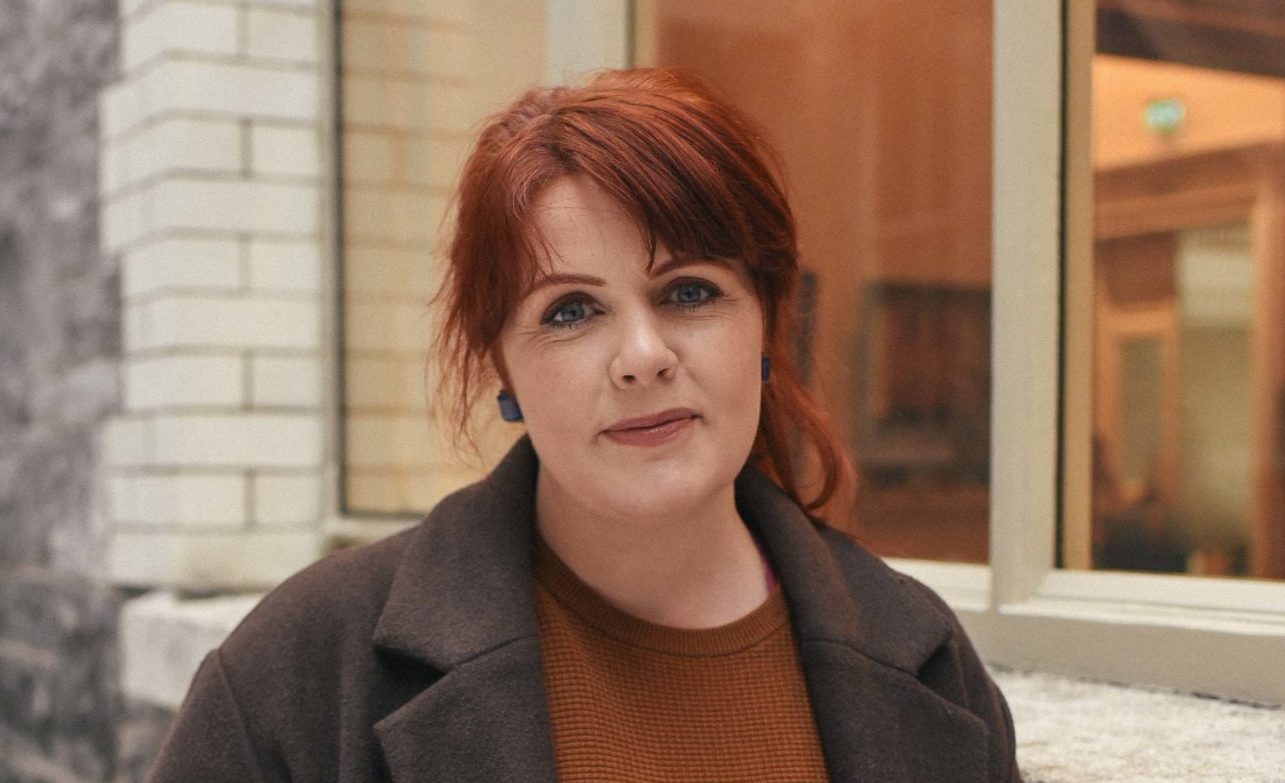- Sex & Drugs
- 09 Aug 24

The Adult Cautioning Scheme was supposed to stop thousands of people from being charged and summonsed for the personal possession of cannabis. However, it’s another example of Irish drug policy failure. Stuart Clark reports on what’s gone wrong, looks at countries where they’re doing it better than us and endeavours to separate marijuana fact from fiction. Additional Reporting: Anna Sparling
If there were any doubts about what this country’s illicit substance of choice is, they went out the window when 61.8% of Irish respondents to the Global Drug Survey admitted to being regular cannabis users – the rest of the top 5 being MDMA (42%), Cocaine (32.5%), Ketamine (21%) and LSD (17%).
Despite the global drift towards either decriminalising or legalising it, anyone caught with cannabis in Ireland can still expect to be dragged through the criminal justice system.
It’s a nonsense which has impacted negatively on tens of thousands of Irish lives, more of which anon.
Hot Press immediately recognised it for what it was – a policy fudge – but there was a degree of optimism in December 2020 when the Garda Adult Cautioning Scheme was introduced.
“The Scheme provides for the administering of a formal caution by a Superintendent, or Inspector acting on their behalf, for certain ‘Scheduled Offences’, as an alternative to prosecution in the District Court,” the official policy document read.
Advertisement
With those scheduled offences including the breach of the Misuse of Drugs Act 1977/’85 “in relation to cannabis or cannabis resin only”, the hope was that people would no longer be taken to court for having derisory amounts of cannabis on them.
ALMOST COMICALLY PETTY
Sadly, in the majority of cases this hasn’t happened with one unlucky Corkman being convicted for possessing just €4 worth of resin.
While that’s almost comically petty, there’s nothing remotely funny about the three years that long-time activist Patrick Moore spent in prison for supplying cannabis and cannabis oil to patients with chronic illnesses.
Whatever about recreational cannabis, there are zero reasons why people suffering from cancer, Huntington’s, Parkinson’s and other serious conditions should be having to source medicinal marijuana from the black market.
According to a recently published Centre for Justice Innovation report, “There has been very limited use of the Adult Cautioning Scheme by An Garda Síochána for simple possession of cannabis or cannabis resin, as only 5,139 people were given this caution between December 2020 and February 2024, while 17,125 people were issued with a charge/summons for this in the same period. This may suggest a lack of widespread awareness about the scheme.”
Or, as was evident last year during their submissions to the Citzens’ Assembly On Drugs, the Gardaí are fully conversant with the Adult Cautioning Scheme but are reluctant to cede any of their powers.
Advertisement
The Guards told us to make a Freedom of Information request to find out how much it costs to take somebody to court in Ireland – we have – but clearly millions have been spent on cannabis prosecutions over the past four years.
Then, of course, there’s the human cost with a sizable number of those 17,125 now unable to take up careers in law, medicine, teaching, childcare, public service driving or any of the other professions where a criminal conviction is a barrier.
As for going on holiday to the US, Canada, Japan, Australia or New Zealand, good luck getting a visa.
We need to see these historical prosecutions expunged as is currently being done in parts of the US.
In its report summary, the Centre for Justice Innovation rued the “missed opportunities to prevent offending and re-offending and improve health outcomes for its citizens.”
THE SAME OLD, SAME OLD
We’ve also witnessed a distinct lack of political leadership. The Labour TD Aodhán Ó Ríordáin, recently elected to the European Parliament, was the last Minister for Drugs (a role he leld from 2014-2016) to propose widespread policy reform along the lines of the decriminalisation model that has worked so well in Portugal.
Advertisement
What we’ve got from his successors are masterclasses in talking about change but delivering the same old, same old.
Appointed in April this year, the new Minister for Drugs, Colm Burke, has done nothing so far to suggest he’ll be any different.
Decriminalisation was a major talking point for the much-vaunted Citizens’ Assembly on Drugs but, alas, the process ended in disarray last October with some members claiming it wasn’t clear what they were voting for and others complaining that they’d been presented with either incomplete or biased information.
There was particular disquiet about the voting process, which saw the Ballot 2 motion to legalise all forms of cannabis in Ireland defeated by the narrowest of 38-39 margins.
The closeness of the vote has been noted by the Special Oireachtas Committee that’s been examining the Citizens’ Assembly’s findings.
One of its members, the Green Party’s Neasa Hourigan, recently told Hot Press that she’s smoked cannabis and “would like to see full legalisation. One of the reasons I’m so keen on it is because of the increase in potency that I’ve seen. People use that as an excuse not to decrim. Whereas I believe that’s the reason you should decrim. A completely unregulated, unchecked industry is increasing potency, so people don’t know what they’re getting. That, to me, is scary.”
While Hourigan is in favour of legalisation, the official Green Party policy is to:
• Reschedule cannabis and its derivatives from a Schedule I drug to a Schedule IV drug.
• Decriminalise the possession of fewer than five grams of cannabis products.
• Decriminalise the possession of fewer than four cannabis plants on private property.
Also in favour of cannabis decriminalisation are the Social Democrats who don’t have a TD on the Oireachtas Committee and Labour who do.
Is it possible that they or the Greens would make it a redline issue in any future coalition negotiations?
At the moment you’d have to think, “No, they’ve bigger political fish to fry” – but if it were somehow to become a major election issue, then possibly.
Advertisement
 Neasa Hourigan. Copyright Miguel Ruiz.
Neasa Hourigan. Copyright Miguel Ruiz.IMPOSSIBLE TO OVERDOSE ON
A major impediment to any Irish government legalising or decriminalising cannabis is the Reefer Madness-style rhetoric from a small number of medical professionals here.
This probably reached its nadir when the College of Psychiatrists of Ireland claimed in a letter to the Irish Times that cannabis is the “gravest threat” to young people’s mental health in this country.
I genuinely thought it was a Waterford Whispers-style parody at first, but then I re-read it and realised that, no, these professionals really were saying that the then Covid epidemic, homelessness, zero hour contracts, extortionate rents, online bullying, racism, alcohol misuse, heroin and being unable to access proper mental health care are lesser threats to the mental health of Ireland’s under-18s than a substance it’s physically impossible to overdose on, and which numerous countries and American states have seen fit to either legalise or decriminalise in recent years.
Dublin-based addiction specialist, Dr. Garrett McGovern, has no time for the scaremongers.
Advertisement
“I don’t see a huge number of people with ‘cannabis problems’ on the frontline, in the HSE or in private practice,” he reflects. “If someone does come to me, it’s usually because they’re taking too much of it, feel that their life is revolving around it and are worried about the effects it might be having on their respiratory system because they’re smoking cannabis resin with tobacco.
“None of us are saying that cannabis is completely harmless – although it is way down the pantheon of drug harms – but the idea of it causing psychosis is completely overplayed.”
What exactly does he mean by ‘overplayed’?
“This idea that psychosis is an inevitable and predictable outcome for cannabis users, which Irish prohibitionists peddle all the time on social media, is just not true,” Dr. McGovern insists. “There are lots of drugs that can trigger psychosis – and I say trigger rather than cause – but they’re relatively rare events.”
McGovern gives an example of why Ireland’s current drug laws are a nonsense.
“I see people whose only problem with cannabis is that they’ve been caught in possession of it and a judge has mandated them to seek treatment and/or produce cannabis-free urine samples, which is a complete waste of everybody’s time and money.
“We only have the resources to treat probably 10% of those with genuine addiction issues, yet we’re talking about sending people to health commissions just because they use drugs. It’s simply not going to work.”
Advertisement
Dr. McGovern is critical of much of the research which is quoted by those on both sides of the cannabis debate.
“It’s either ridiculously pro or ridiculously anti, which in both cases is dishonest,” he concludes. “There is one, though, from Canada – Legislative Review Of The Cannabis Act: Final Report of the Expert Panel – which blew me away because it looks at the drawbacks of legal, regulated access whilst also saying that the worst way of addressing them is a return to prohibition.”
 Dr Garret McGovern
Dr Garret McGovern• The Legislative Review Of The Cannabis Act: Final Report of the Expert Panel can be read in full at canada.ca








